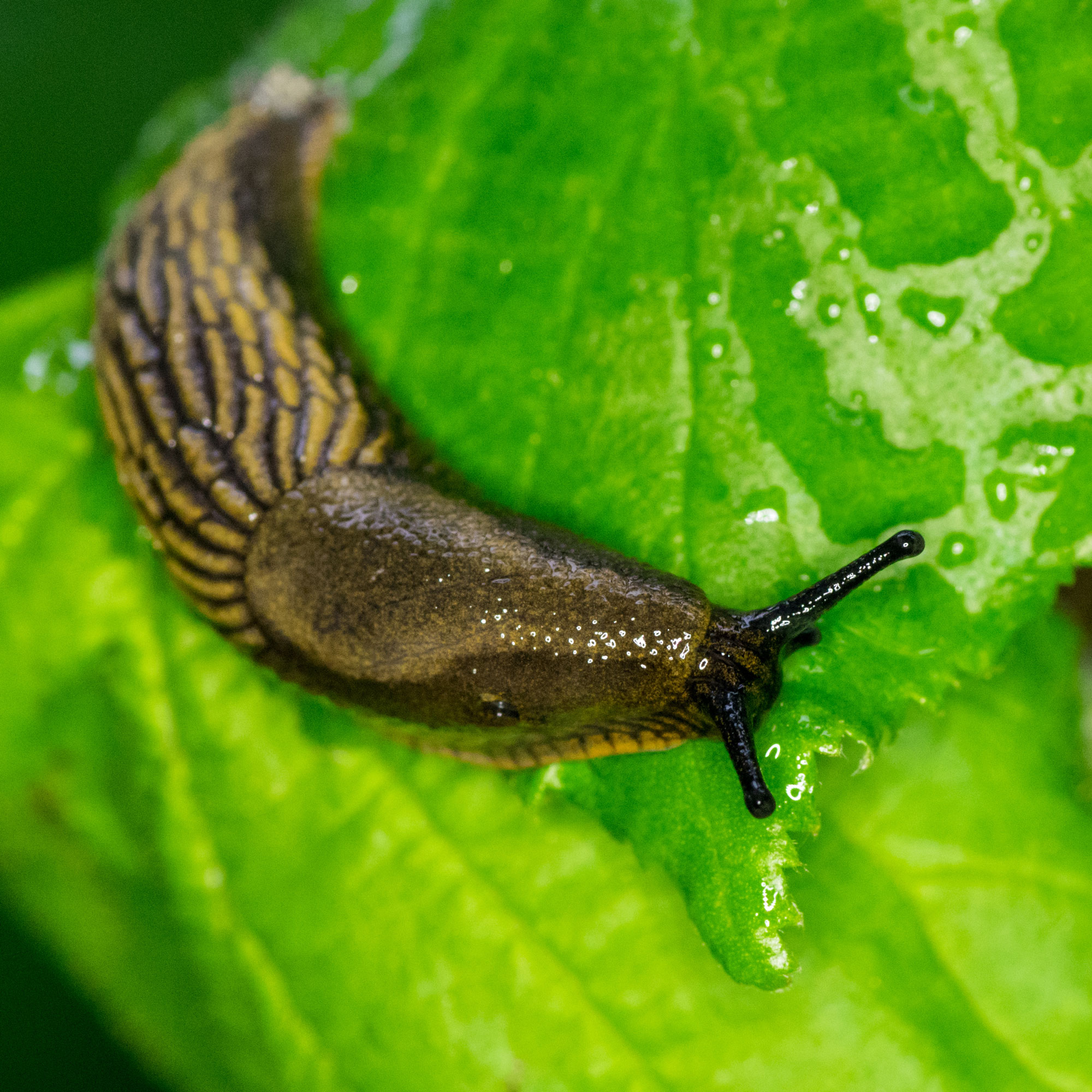
When planning your garden, you may focus on the plants you love. But what if we told you that you should be focusing on the plants that slugs love?
Yes, nothing ruins a garden idea quite like the invasion of slimy, slithering, hungry invaders who will stop at nothing to chomp on your lettuce and desecrate your dahlias. But if you’ve tried countless ways to get rid of slugs, planted the plants that slugs hate, and STILL notice the tell-tale slime trails in your garden, there is another option you should consider.
The idea? Trap cropping. This technique sacrifices the plants that slugs love, creating a wall of protection around your fruits and vegetables or your favourite plants. This way, the slugs will focus more on the delicious slug-friendly plants and less on your much-loved handiwork - and it works a treat if you want to stop snails from eating your plants, too.
1. Hostas
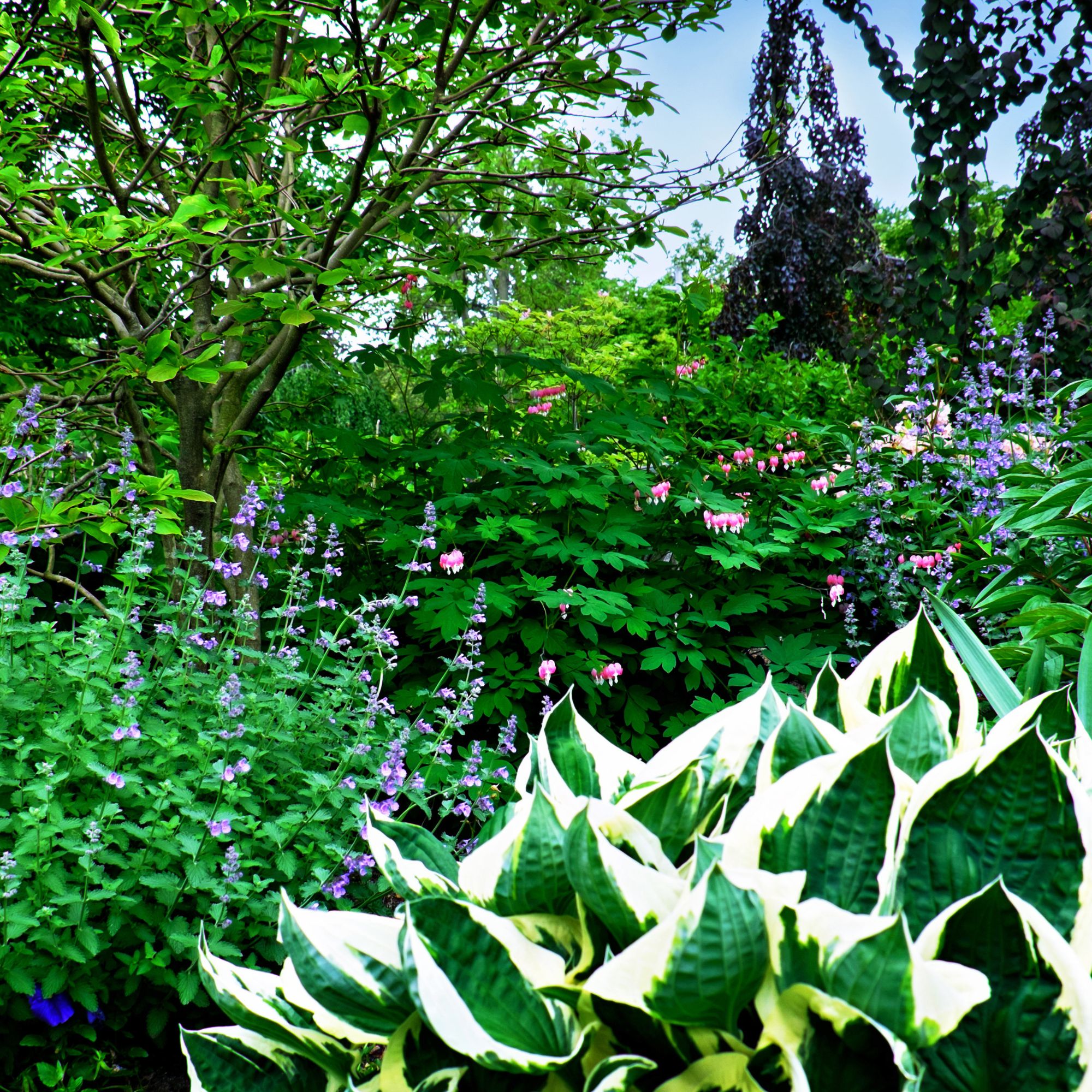
Leafy and green hostas are some of the best flood-proof plants out there. But while they thrive in damp and moist environments, so do slugs - making them a delicacy in the slug world. You can use this to your advantage, though.
John Clifford, garden expert at Gardenstone explains, ‘Draw slugs away from your more valuable crops, by planting plants like hostas around the perimeter of your garden or in other strategic locations.’ In fact, trap cropping is very similar to companion planting.
But if you’re going to sacrifice your hostas to the slugs through trap cropping, it’s a good idea to learn how to grow hostas before you get started.
Where to buy hostas:
- Amazon: Buy three hosta plants in 9cm pots.
- Dobies: Choose bare-root hosta plants.
2. Delphinium
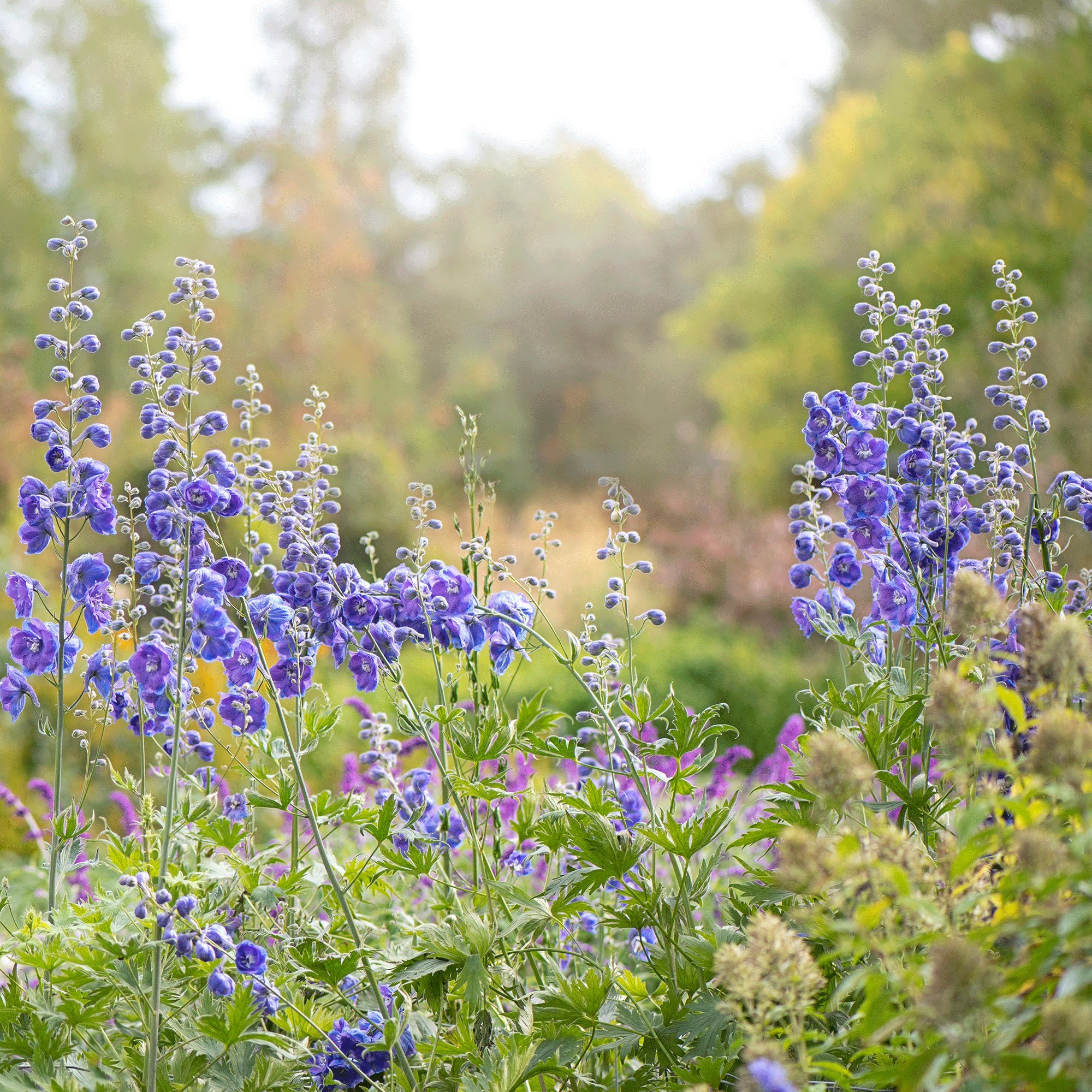
With their tall flower spikes and their vibrant varieties, there’s a high chance that you love delphiniums. And slugs seem to have the same idea, too, as they’ll chomp on this colourful plant all summer long.
In fact, Morris Hankinson, director of Hopes Grove Nurseries, says, ‘Their tender new shoots are particularly vulnerable.’ So, by planting delphiniums around your cabbages or young hydrangea plants, you can protect them from the slimy critters and give them a better chance of survival.
And while it seems a shame to sacrifice your delphiniums, these hardy perennials will return next year - so it’s not a complete waste.
Where to buy delphiniums:
- Amazon: 10 mixed delphiniums ready to plant.
- B&Q: Buy 12 young delphinium plants.
3. Lupins
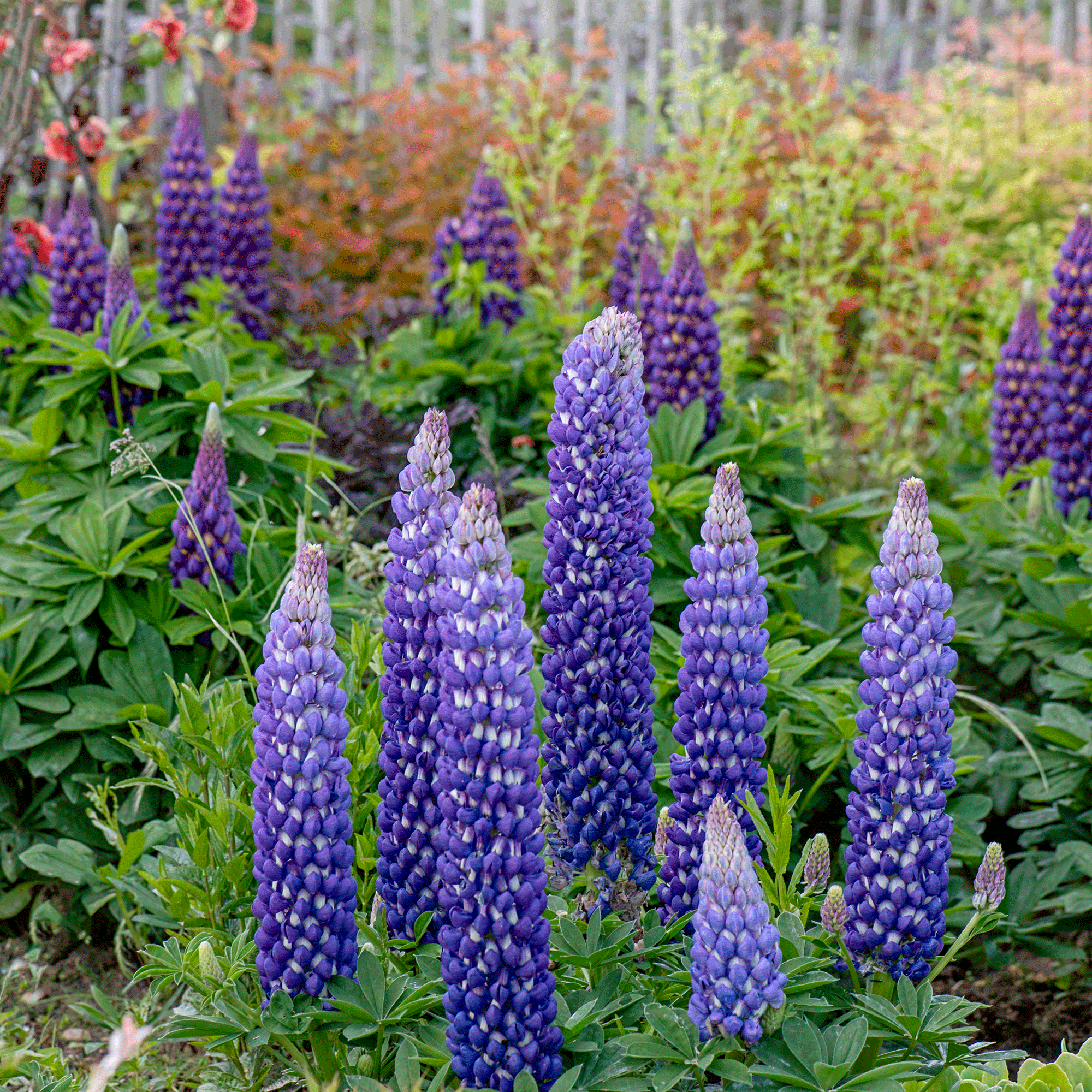
Similar to delphiniums, lupins offer tall flower spikes that make a real impact in the garden, but they can also be desecrated by slugs. And while you may be inclined to stop slugs from feasting on your lupins, it’s important to think of the greater good.
After all, while the slugs are munching on your lupins, they’re steering clear of the plants that mean the most to you.
Don’t worry, though. It’s incredibly easy to propagate lupins, so you can use these sacrificial plants to grow more that won’t be used for slug-trapping purposes.
Where to buy lupins:
- Dobies: Various bare-root lupin plants to choose from.
- Gardening Express: Buy lupin plants in 1-litre containers.
4. Dahlias
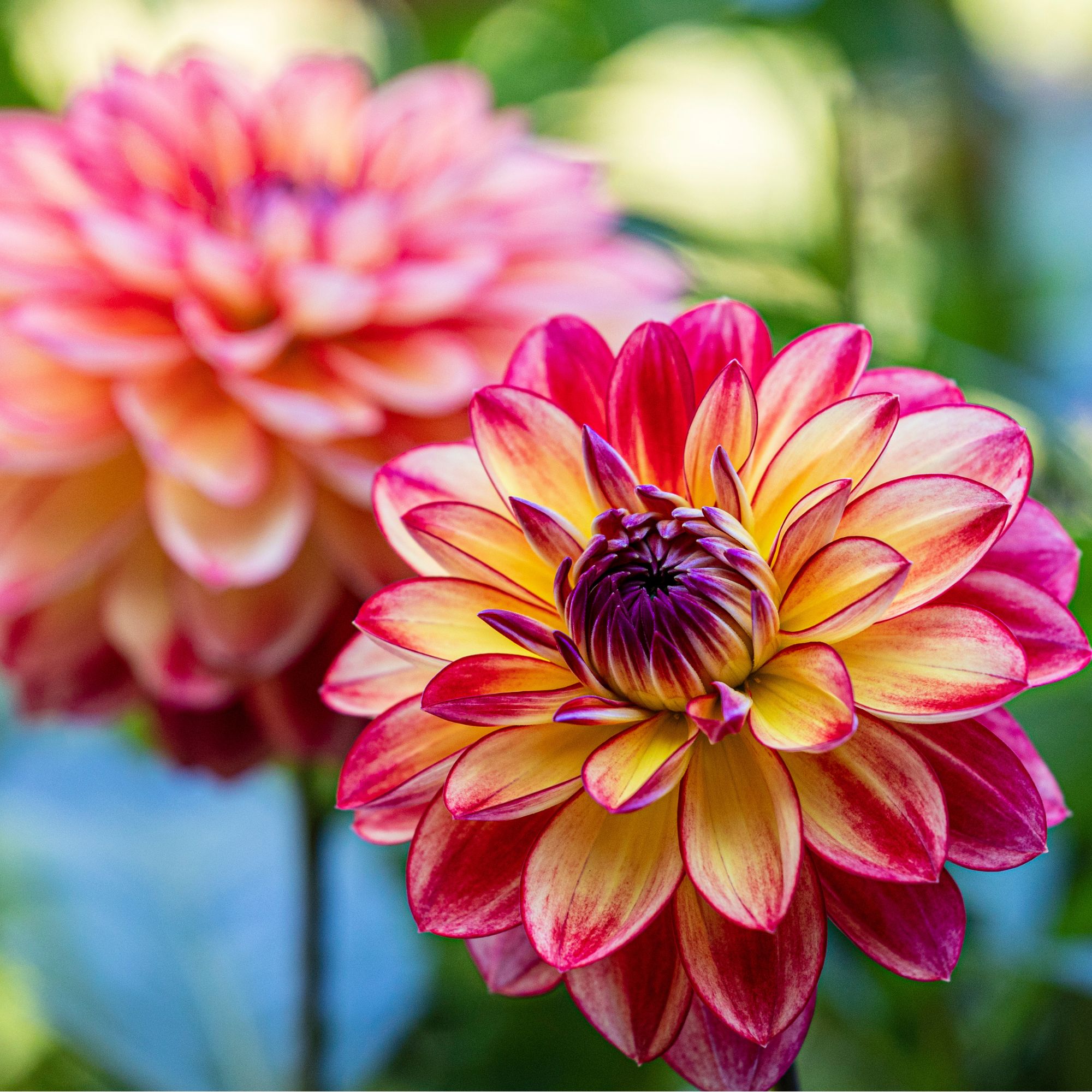
The idea of sacrificing stunning dahlias to slimy garden invaders may fill you with horror, but dahlias are one of the plants that slugs love. And if you want to keep your raised garden bed or garden borders slug-free (and you don’t want to use chemicals), it’s an effective option.
If you fancy trying this for yourself, just make sure you know when to plant dahlias so you can make the most of them. Then, John suggests, ‘Place somewhere you can easily reach and wait until slugs arrive. Then, manually remove them.’
And, of course, you can still grow dahlias in pots and use the likes of pot feet and copper tape to keep those free from slugs.
Where to buy dahlias:
5. Sweet peas
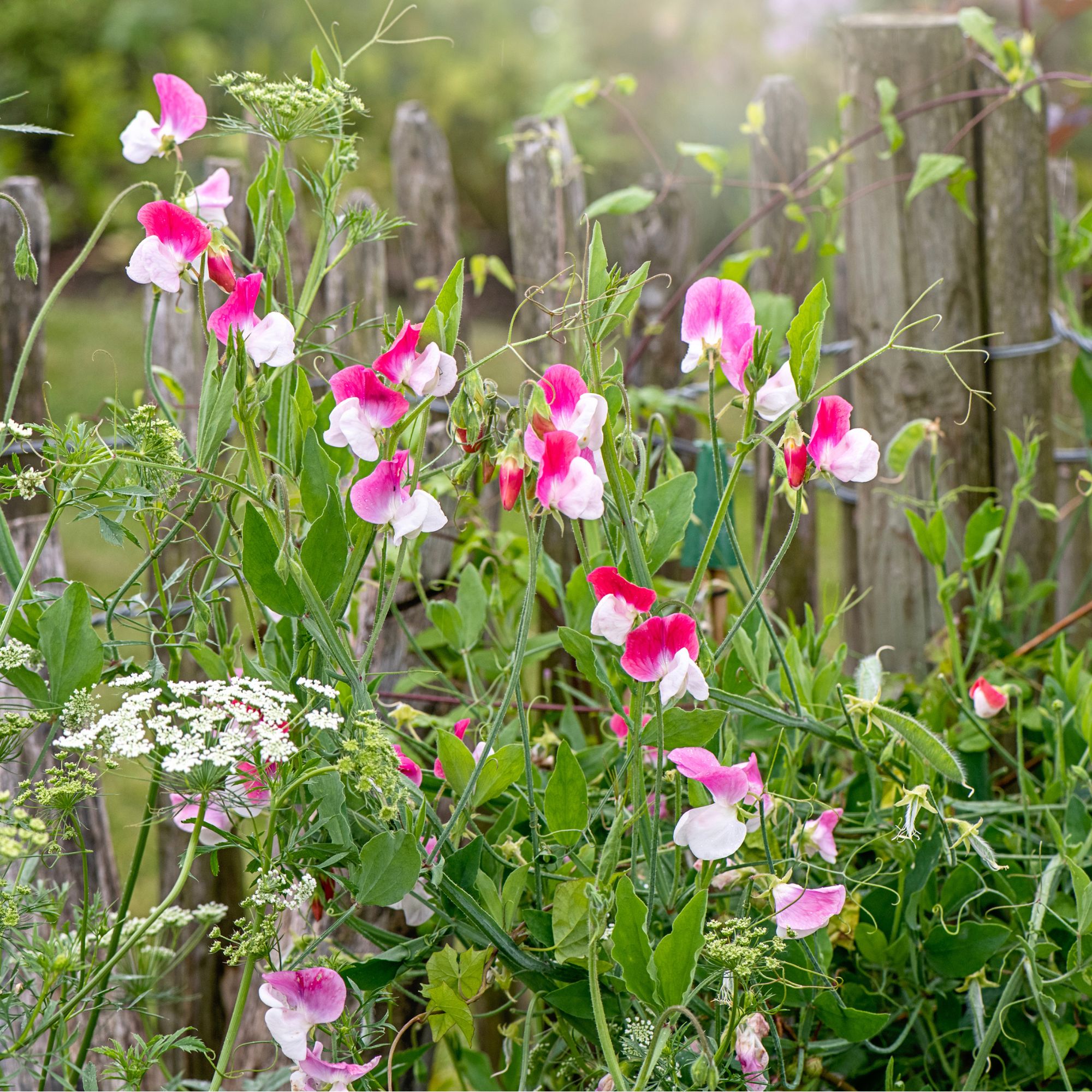
Sweet peas are an Ideal Home favourite, especially as they're so easy to grow sweet peas from seed. But as these delicate blooms are one of the plants that slugs love, you can also use them to lure slugs away from plants that are even more delicate.
Simply plant them around the plants that you want to protect, or grow them in pots to create both a physical and a food barrier. And before you know it, the slugs will be eating the sweet peas instead.
As sweet peas are an annual, they’ll only last a year anyway - so you’re not sacrificing them too much. And if your sweet peas aren’t flowering, it might be worth sacrificing them anyway.
Where to buy sweet peas:
- Amazon: Buy three ready-to-plant sweet pea plants.
- Thompson & Morgan: Choose to grow sweet peas from seed instead.
6. Pansies
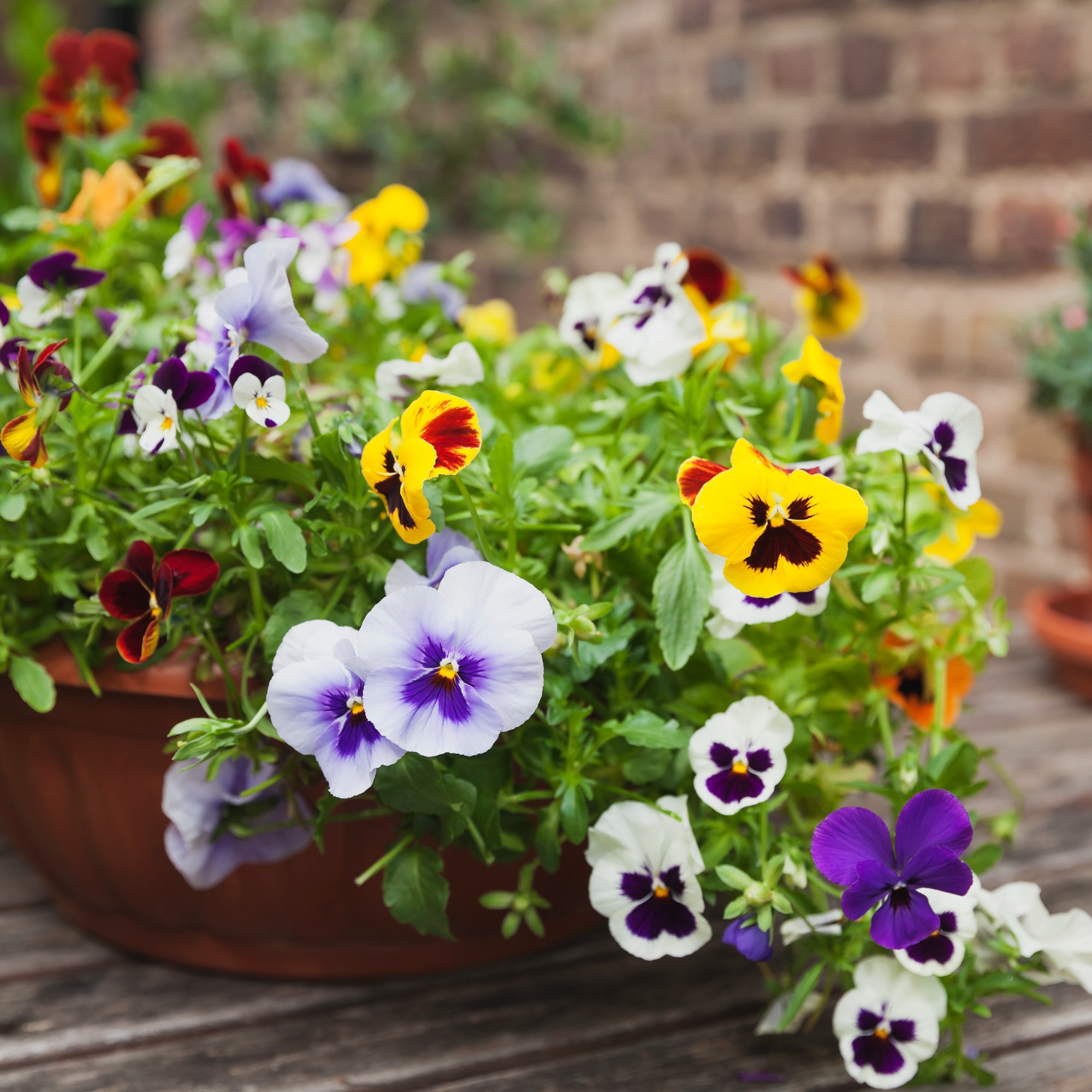
Pansies should be a staple in any garden. They can provide much-needed colour and impressive ground cover when needed. However, this makes them extremely desirable to slugs.
Morris says, ‘Dense planting and thick ground cover create a humid microclimate that slugs love. Additionally, gardens with many hiding spots, such as rocks, mulch, and dense foliage, offer slugs protection from predators and the elements.’ And given the chance, slugs will eat pansies over anything else in the garden.
But they’re some of the cheapest bedding plants you can buy, so you won’t waste too much money by sacrificing your pansies. They can be replaced for as little as £3 for a pack of 75 seeds from B&Q after trap cropping.
Where to buy pansies:
7. Petunias
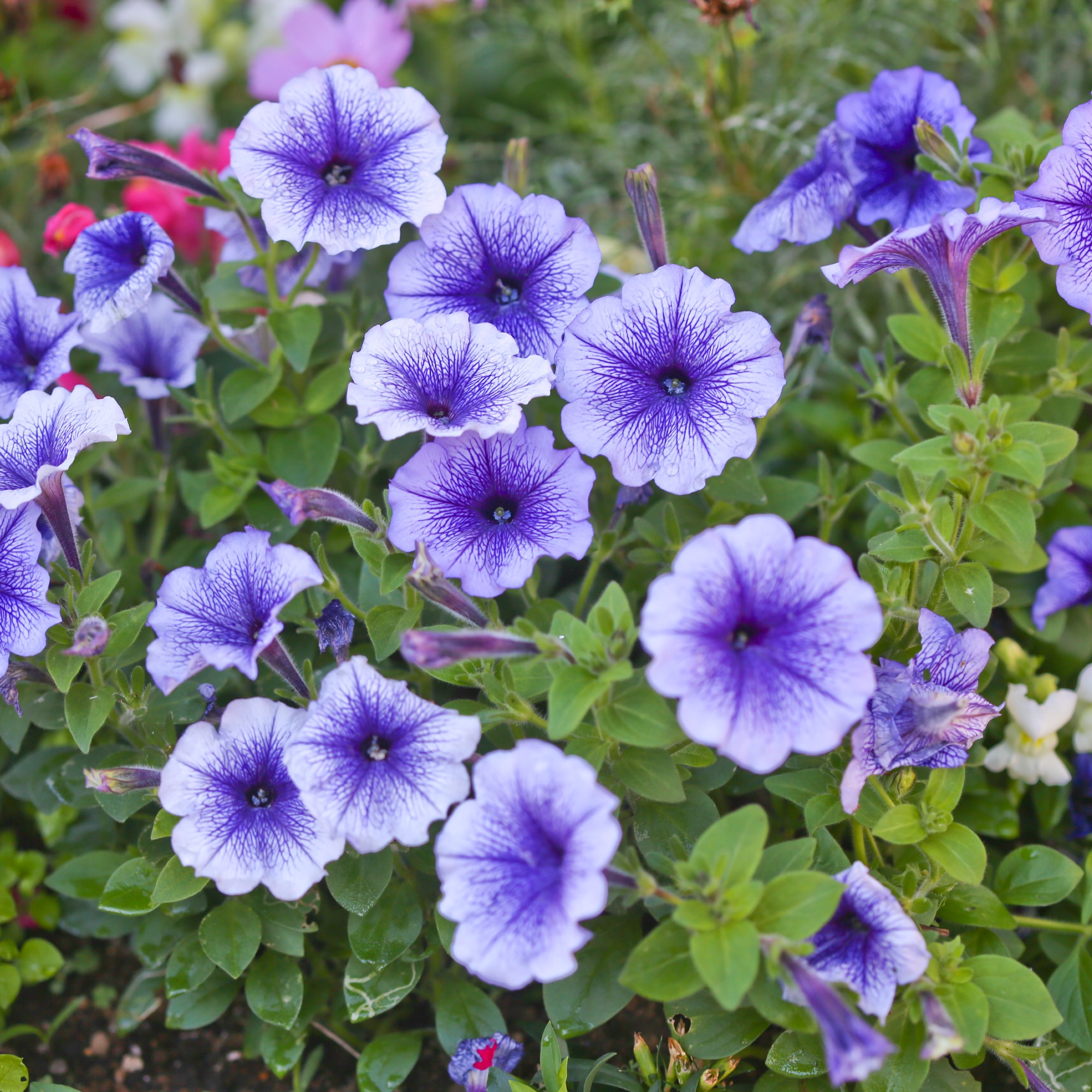
Petunias come in many different shapes, sizes, and colours, allowing you to bring any garden idea to life. And while we’d always lean towards using petunias in a cottage garden, we’ve also learned not to get too attached to these blooms.
After all, they’re perfect for crop trapping and keeping slugs away from other plants in the garden. All you need to do is plant them near the plants you want to save from slugs, and they should give the petunias all of the attention instead.
As most petunias are grown as annuals, they should keep the slugs away throughout the summer and autumn months without any human intervention. But you'll need to know how to overwinter petunias if you treat them as perennials (and if they survive the slugs).
Where to buy petunias:
- Amazon: A mixed variety of 20 petunia plants.
- Thompson & Morgan: Choose your number of petunia plug plants.
8. Gerberas
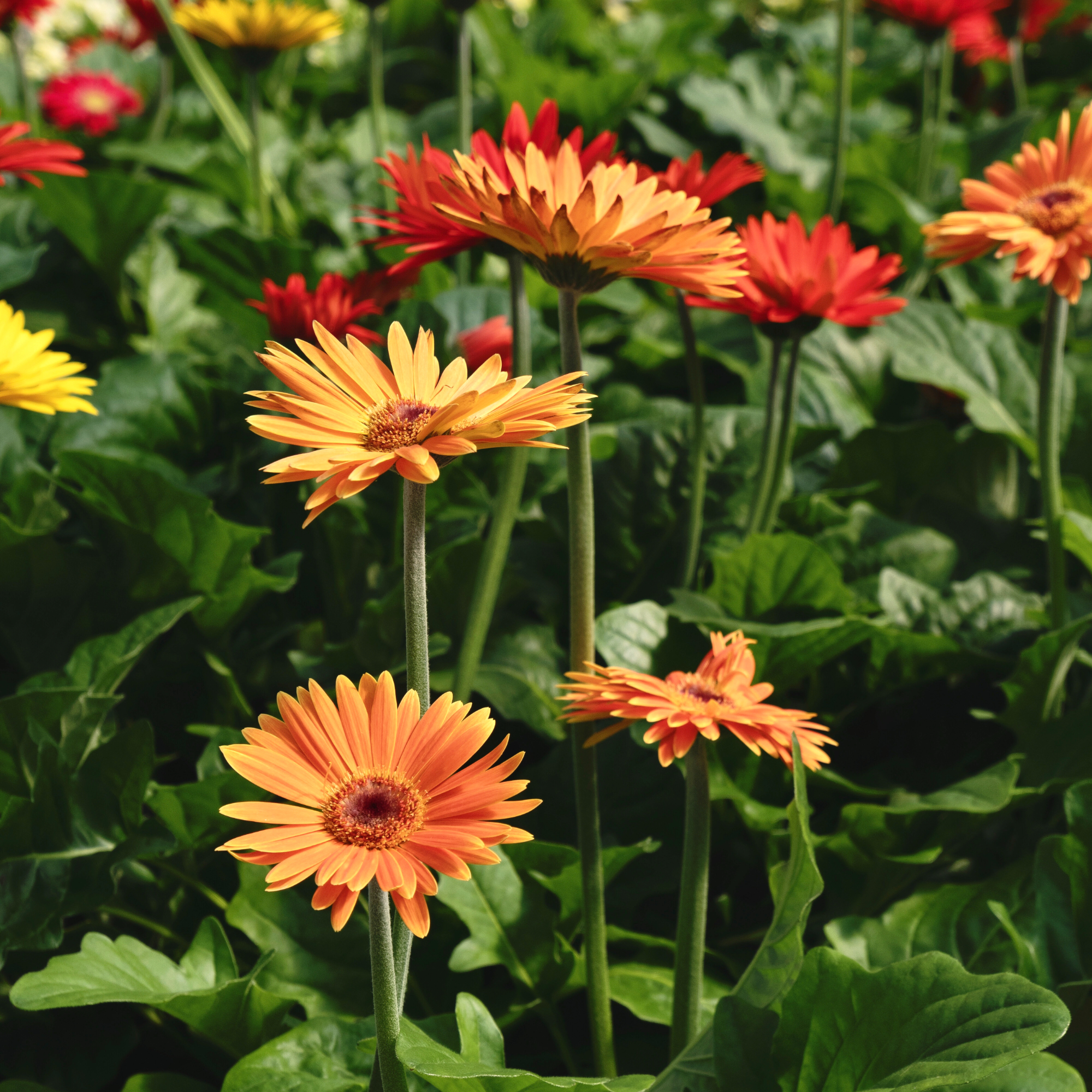
Gerbera daisies are often a popular choice for flower bouquets, but it’s well worth growing them in your garden, too. That’s because slugs will instantly gravitate towards these colourful blooms, allowing you the chance to lure them away from your beloved crops.
In fact, slugs particularly love gerbera seedlings and young plants, so we’d suggest growing a few gerbera plants yearly to eliminate slugs and keep them away from more vulnerable or desirable plants.
If you don’t want to sacrifice all of them, however, you can grow more elsewhere to make the most of their colourful blooms.
Where to buy gerberas:
9. Chrysanthemums
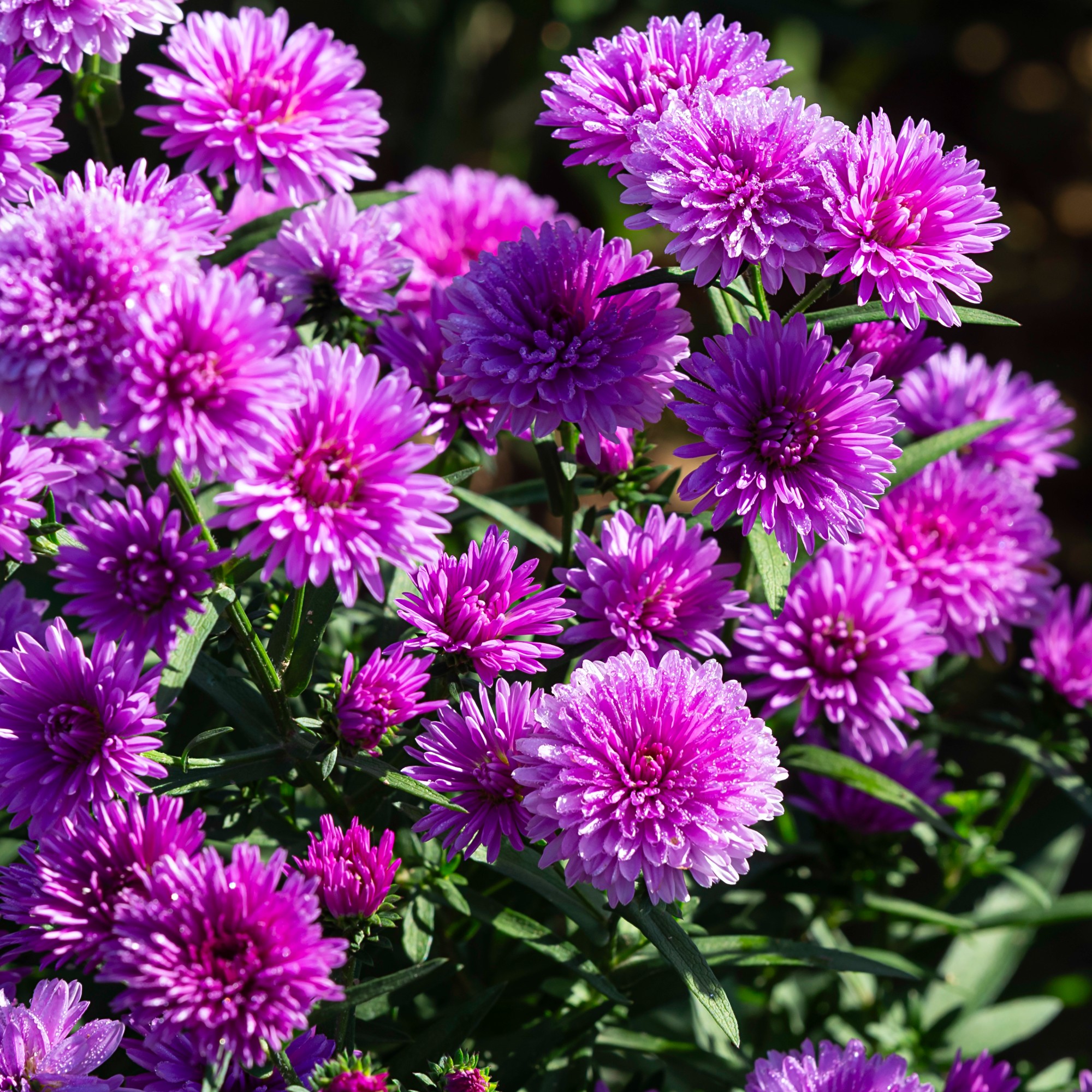
There are so many amazing chrysanthemum varieties out there, but one thing they all have in common is that they’re plants that slugs love. To be more precise, a garden full of chrysanthemums is like an all-you-can-eat buffet for these critters.
And while it may seem a shame to sacrifice chrysanthemums, planting them in such a way that the slugs will focus on them rather than other plants can be a great way to get rid of slugs. In most cases, simply planting them around your more vulnerable plants should be enough.
Just make sure you know how to grow chrysanthemums so you can really take advantage of these slug-trapping plants.
Where to buy chrysanthemums:
- Amazon: Buy six chrysanthemum plug plants.
- Suttons: Buy a pack of 550 chrysanthemum seeds.
FAQs
What are slugs most attracted to?
Like humans, slugs are attracted to two things; food and water. For a slug, their idea of a hearty meal is decaying organic matter in moist, wet soil. But when they can’t get that, they’ll move on to the next best thing, which is normally the plants in your garden.
But it’s important to note that slugs aren’t attracted to all plants. There are some plants that slugs absolutely hate and will steer clear of, while there are other plants that slug loves.
And while you may assume that you can only use plants that slugs hate to keep them away, taking advantage of the ones they love can also work in your favour.
Are geraniums slug resistant?
Yes, hardy geraniums are almost entirely slug-resistant. It’s believed that slugs hate the texture of the leaves and do not enjoy the taste of geraniums, so they’ll steer clear of this plant.
However, there are many varieties of geraniums out there, and only those that are hardy are considered to be slug-resistant. More tender varieties may still suffer the wrath of slugs.
So, will you sacrifice your plants to keep the slugs at bay?







